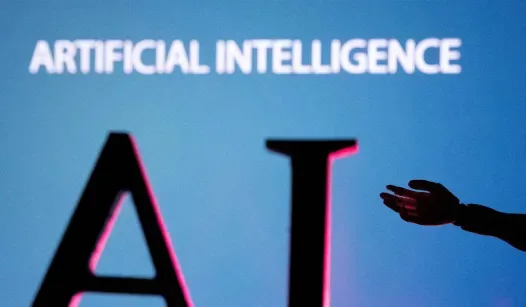As the world races toward an AI-driven future, the stakes have never been higher for the United States. The competition with China in artificial intelligence is not just a technological challenge; it is a crucial battle for the future of global governance and individual freedoms. If the U.S. fails to secure its position as a leader in AI, we may face a future where authoritarian regimes dictate the norms of surveillance and control, eclipsing the democratic values that have long been a hallmark of American society.
The implications of this race extend beyond mere technological advancements. AI has the potential to reshape economies, influence political structures, and alter the very fabric of daily life. As countries like China invest heavily in AI development, the U.S. must respond not only with innovation but also with a commitment to ethical standards and the protection of civil liberties.
China’s approach to AI is characterized by state control and extensive surveillance. The Chinese government has implemented AI technologies to monitor its citizens, suppress dissent, and maintain social order. This model poses a significant threat to personal freedoms and privacy, contrasting sharply with the democratic ideals that the United States champions. If China emerges as the dominant power in AI, the global order could shift toward one where state-run surveillance is the norm, undermining individual rights and freedoms worldwide.
In contrast, the U.S. has the opportunity to lead by example, promoting AI development that prioritizes ethical considerations and respects human rights. This requires a concerted effort from both the public and private sectors to invest in research, create robust regulatory frameworks, and foster an environment that encourages innovation while safeguarding individual liberties.
To maintain its leadership in AI, the United States must also focus on education and workforce development. As AI technologies evolve, there will be a growing demand for skilled workers who can navigate this landscape. Investing in education and training programs will ensure that the American workforce is prepared to meet the challenges and opportunities presented by AI.
Moreover, collaboration with allies will be essential in shaping a global framework for AI governance. By working together with like-minded nations, the U.S. can promote standards that prioritize transparency, accountability, and respect for human rights in AI development and deployment. This collaborative approach can help counterbalance the influence of authoritarian regimes and ensure that the benefits of AI are shared broadly.
Public discourse around AI must also be prioritized. Engaging citizens in conversations about the implications of AI technology is crucial for fostering an informed electorate that can advocate for policies that align with democratic values. Transparency in AI development and its applications will build trust and enable the public to understand the potential risks and benefits associated with these technologies.
As we look to the future, it is clear that the AI race is not just about technological supremacy; it is a defining moment for the values we uphold as a society. The decisions made today will shape the trajectory of global governance for generations to come. The United States has the opportunity to lead in a way that champions freedom, democracy, and human rights, ensuring that AI serves as a tool for empowerment rather than oppression.
In conclusion, the outcome of the AI race will have profound implications for the world order. The U.S. must rise to the challenge, not only to maintain its technological edge but also to safeguard the principles of freedom and democracy that are at stake. By prioritizing ethical AI development, investing in education, and fostering international collaboration, America can play a pivotal role in shaping a future where technology enhances, rather than undermines, our shared values. The time to act is now; the future of freedom depends on it.
